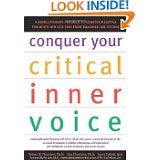Why Do We Trigger Each Other in Close Relationships?
3 important factors to help you understand why you’re triggered by your partner
![]() What is a fight between a couple but a series of triggers being set off one after the other? One person feels dismissed in a conversation and accuses the other of being superior. The other person fires back that they’re being dramatic. This sparks rage in the first person, because for them “dramatic” is a buzzword associated with all kinds of other negative adjectives, like “irrational,” “overly emotional,” and “manipulative.” The conversation gets messy, because every word has padded meaning. Every insult can burst open a complex, emotional pathway to each person’s past. The interaction may appear to be happening between two people in the here and now, but the reactions, the language, and the emotions being expressed are all deeply rooted in two very separate histories and two unique experiences.
What is a fight between a couple but a series of triggers being set off one after the other? One person feels dismissed in a conversation and accuses the other of being superior. The other person fires back that they’re being dramatic. This sparks rage in the first person, because for them “dramatic” is a buzzword associated with all kinds of other negative adjectives, like “irrational,” “overly emotional,” and “manipulative.” The conversation gets messy, because every word has padded meaning. Every insult can burst open a complex, emotional pathway to each person’s past. The interaction may appear to be happening between two people in the here and now, but the reactions, the language, and the emotions being expressed are all deeply rooted in two very separate histories and two unique experiences.
Heated back and forths between couples are not that surprising, because nothing triggers us as emotionally as our relationships with other people. And the closer the relationship, the more likely we are to be affected. We may feel set off by each other’s words, tone of voice, or facial expressions. We may read between the lines and infuse all kinds of meaning into our partner’s behavior. But why do we do this? Why do relationships that started off sweet and simple become a hotbed for projections and provocations that steer us away from our loving feelings?
If we want to develop a clearer, more honest, and compassionate way of viewing and relating to our partner, it’s valuable to get to know the core psychological roots of the negative thoughts and feelings being stirred up. Here are three elements to consider that can help us understand and overcome our triggers:
- Our Critical Inner Voice
When we feel triggered by our partner, several things may be going on. For starters, we usually aren’t just dealing with what the other person is saying or doing, but whatever we are telling ourselves about what they are saying or doing. We all have a “critical inner voice” that coaches us about ourselves and others. This inner critic is formed out of negative early life experiences. It’s shaped from things we were directly told as well as more subtle attitudes we picked up or witnessed. Not only does this inner critic influence our own sense of identity, becoming the cruel and doubting “voice” in our head, but it also warns us about other people and relationships in general.
When our partner does something that upsets us, our reaction can be exacerbated by a series of critical inner voice attacks, i.e.:
- He forgot what you asked him again. He thinks you’re a nag. He’s being so selfish!
- She isn’t really listening to you. She doesn’t think you’re interesting. She only cares about what she has to say.
- I can’t believe he wants to talk again. You can’t handle this. Why is he so needy all the time?
- She is so annoying when she talks over you. She thinks you sound stupid. She must think she’s better than you.
The reason our critical inner voice is so destructive is not because it notices real things that need to be addressed, but because it distorts the world through a dark filter. It exaggerates and adds an interpretation that is often skewed. For example, no one likes to be ignored or talked over, but our inner critic isn’t telling us to calmly communicate with our partner about what bothers us. Instead, it’s infusing these behaviors with hidden meaning. It tells us that we must be stupid or uninteresting, and that our partner is critical and insensitive.
Before we even have a chance to address the issue with our partner, our mind is five steps ahead already lost in dialogue with our critical inner voice. Our behavior becomes a response to that internal conversation rather than to anything that’s happening with our partner. We may then act cold or angry or in ways that don’t make sense to our partner. If we do decide to talk to our partner about it, instead of saying, “Hey, it really bothers me when you tune out when I’m talking. I feel hurt and like we miss out on a chance to connect,” we may say something like, “Why do you ignore me all the time? You’re obviously not interested in anything I have to say. You don’t care about me.” This heightened response is much more likely to provoke our partner (as well as their own critical inner voice), and thus begins a cycle of one person triggering the other, and nothing getting resolved.
- Our Attachment History
In order to understand why certain behaviors trigger us more than others as well as why we interpret our partner’s actions the way we do, it’s helpful to explore our attachment history. We establish attachment patterns in early childhood with important figures in our lives. These patterns go on to function as “working models” for relationships in adulthood. In other words, they influence how we behave and how we expect others to behave. They can also help form the content of our critical inner voice.
As children, if we experienced a secure attachment pattern, we were able to feel safe, seen, and soothed by a parent (or primary caretaker) and to see that parent as a secure base from which we could venture out and explore the world. As an adult, we tend to be more satisfied, supportive, and secure in our relationships, feeling connected, while also allowing ourselves and our partner the space to move freely.
However, if we experienced an anxious ambivalent attachment as a child, our parent was probably intermittently available. They may have sometimes made us feel safe, seen, and soothed, but other times, they may have been unavailable, intrusive, or misattuned to our needs. They may have even acted out of their own need or “emotional hunger” toward us. This created a pattern where we had to take action to be noticed by our parent and get our needs met. As adults, having grown up experiencing an ambivalent attachment pattern, we’re more likely to feel insecure and unsure of our partner’s love. We become preoccupied, always wondering and trying to ascertain if our partner will be there for us, often asking for reassurance in a manner that pushes them away. We often feel desperate, anxious, fearful, or jealous, and find ourselves acting in ways that are experienced as controlling, clingy, or possessive.
Having a preoccupied attachment style makes us more likely to feel triggered by a romantic partner in specific ways. For instance, if we catch our partner looking at someone else, our critical inner voice may say, “He wants to be with other people. He’s going to leave you. You should confront him right now!” If our partner doesn’t text us back right away, we may think, “She is annoyed by you. Quick, you have to call her to make things right.” If our partner is quiet at dinner, we may think, “Why isn’t he talking to you? He finds you boring. Make him tell you what’s wrong.”
Alternately, if we had a parent who was emotionally unavailable or rejecting of our bids for connection, we most likely formed an avoidant attachment pattern, and learned that to be in touch with our needs was painful, frustrating, and shame inducing. As adults, we’re likely to form a dismissive attachment in which we are emotionally distant from our partner. For instance, we may focus more on our work than our relationship. We may be “pseudo-independent” and see ourselves as just fine on our own. Because we have adapted by disconnecting from our own needs, we often perceive others as emotionally “needy.” When we feel triggered by our partner, we may see their reaching out or attempting to connect as needy, dramatic, or overwhelming. Our voice attacks may sound like: Why is she so focused on you? You need your space. He is so emotional all the time. You can’t deal with this right now. She asks too much of you. You need to create a boundary. He’s such a baby.
Our attachment patterns can lead us to distort our partner, fitting them into a picture that comes from our past. For example, an anxiously attached person may read rejection into a totally devoted partner who is just busy at the moment. A dismissively attached person may see “neediness” in a simple gesture of affection. We distort our partners by projecting that they’re behaving certain ways or seeing us in ways that fit with an old identity we felt in our family. We feel all the painful old emotions we felt as a child. Therefore, we have a big oversized reaction, which in turn triggers our partner.
Because these dynamics are so familiar to us, we may even act out in ways that unconsciously recreate the emotional climate in which we grew up. If we felt criticized and controlled in our family, where we were often told we were “lazy” or “childish,” we’ll likely feel sensitive to being condescended to as an adult. Yet, we may leave stuff around or forget to do things just enough to provoke our partner to get frustrated and be parental. We play out one side of a dynamic to get our partner to play the other. Inevitably, we’ll feel triggered and reactive to our partner, and we’ll continue to attack them and ourselves with the same adjectives we picked up from our family of origin.
- Our Primary Emotions
In addition to critical thoughts that get surfaced, we are very likely to be stirred up emotionally in a close relationship. We may think our emotions are rational responses to real events, but we are rarely aware that the intensity of our feelings has a lot to with being triggered by our past.
Dr. Les Greenberg, a founder of Emotion-focused Therapy, describes how primary emotions are our initial emotional reaction, but they’re often covered over by a more defended secondary emotion. Much of the time, we are only consciously aware of the secondary emotion. For example, if our partner forgets a plan we had made together, we may jump to feeling anger to avoid feeling the more vulnerable emotion of being hurt. Our primary emotions offer us clues into our needs, so it is important to get in touch with them. They are often linked to deeper feelings of hurt, sadness, or shame from our past. Facing them can make us feel vulnerable and exposed. As a result, we may be more inclined to react to our romantic partner based on our secondary emotions: the anger that follows shame, the anxiety that follows sadness, etc.
Primary emotions can be adaptive reactions to what’s really going on, but they can also be maladaptive responses based on schemas from our past. They may be sparked by current events, but they often connect to ways we felt early in our lives. For example, if we were seen or treated like we were a burden in our family, having our partner brush us aside momentarily can feel like a monumental blow. It can trigger an intense feeling of being worthless that has little to do with our partner’s actions or intentions. Before we make sense of or even acknowledge this sadness, we may have an ashamed reaction that leads us to retreat from our partner, perhaps punishing or stonewalling them. However, if we face that primary feeling of sadness and allow ourselves to feel it, we are actually less likely to be a slave to our secondary emotion of shame.
Instead of a knee-jerk reaction to a trigger, we can allow ourselves to ride the wave of emotion that teaches us something deeper about ourselves and our reactions. Plus, as Greenberg explains, primary emotions tend to “wash over us,” and they leave us feeling relieved and revitalized rather than stuck in our suffering. Also, by taking a chance and revealing our primary emotion to our partner, we are allowing them to know us on a deeper level, and, believe it or not, we are more likely to elicit a caring response from them. Primary emotion connects us to our need, which we can then express, and when we do, we are more likely to get what we want.
So often, people assume that in order to change their reaction to their partner, they have to change their partner. Yet, in truth, we can stop feeling so intensely triggered by our partner by looking closer at ourselves. By being willing to explore the critical inner voices, attachment patterns, and emotions that infiltrate our reactions, we can shift our perspective to one that’s more reflective of who we really are and what we really feel. We can begin to peel away negative overlays from our past to allow ourselves to be free to be close to someone else in our life today.
4 Comments
Comments are closed.










Hi
I am very interested in learning more about emotion based therapy- I’ve gone through DBT 10 years ago and found it Very helpful and still refer to it now on a regular basis. Can you please email me with therapists that practice Emotion based therapy
I’m from Long Island, New York. Nassau county
Would love to hear back from you soon
Fondly
Joy
Hi Joy,
I’m a therapist who follows Psych Alive, not from PsychAlive myself but i happened to see your request here from 6 weeks ago that seems unanswered, so my suggestion would be to go to PsychologyToday.com, then to the “Find a Therapist” link, enter your zip code or city, which will bring up all listed therapists in your area, and then under “Refine” you can filter the list and choose “Emotionally Focused” to screen for EFT therapists.
Hi
I need help. I think I’m going through everything you just mentioned above and it’s really painful for me because at this point I don’t think my partner is interested in helping me… I want to understand more, I want to stop being triggered like my life depends on it and I don’t know how to go about it… Help please…
[…] emotional tailspins, it’s worth asking what these triggers are really about. According to PsychAlive, childhood attachment patterns often influence how we react to our partner’s behavior, […]